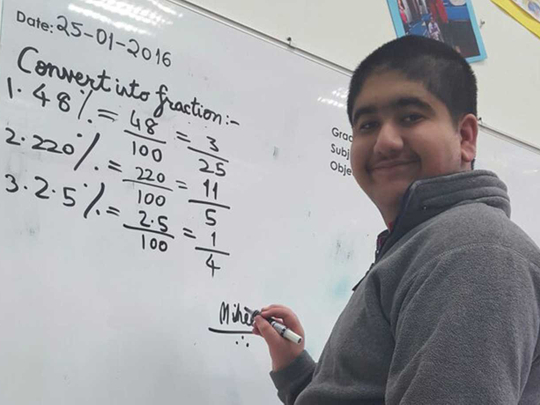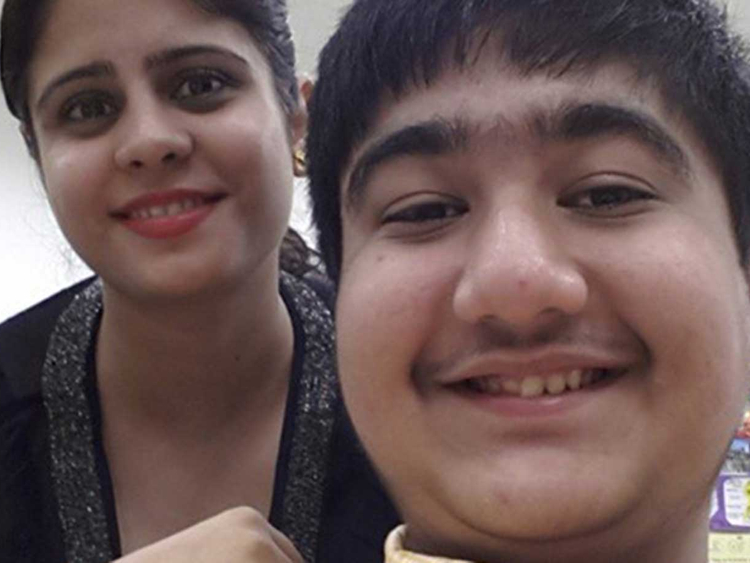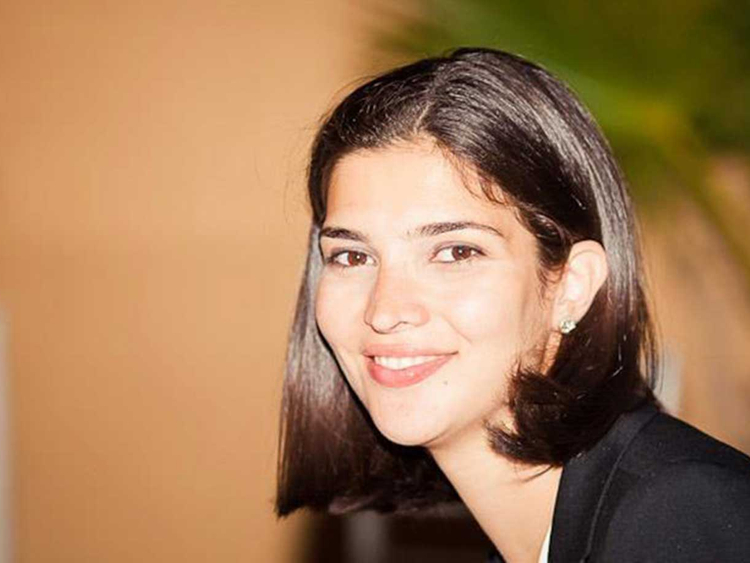
The Dadlani family doesn’t have a calendar hanging anywhere at home. They just don’t need it anymore.
The youngest member of this family – 13-year-old Miheerr Dadlani – has made the need for it redundant. Give him a date, any date, and he can tell you which day it falls on. If you flip the equation and ask him which date the first Sunday of next month will be, he can tell you that, too. Simply put - he has the entire calendar programmed right into his mind, from the first entry 1-1-1 to the next two thousand years.
Miheerr Dadlani has Asperger Syndrome, a high-functioning autism disorder.
For his parents, this poses a major challenge. While his mathematical skills are exceptional, Miheerr struggles with many aspects of school life.
According to a US-based organisation Autism Speaks, children with Asperger Syndrome, or high functioning autism, have IQs that fall in the normal or even superior range, compared to children with classical autism. However, they do find it difficult to identify and express their feelings or connect with others, according to the US-based National Institute of Neurological Disorders and Stroke (NINDS).
Having a shadow teacher who helps him with most of his school work, Miheerr’s journey to grade eight has been somewhat bumpy, but possible. However, his parents are not quite sure about the best way forward for this gifted child.
“We don’t know how much he’ll be able to go ahead if he’s under pressure and understanding is a problem,” Sanjiv Dadlani, his father, told Gulf News.
“I’m sure other children also go through a lot of pressure but he’s got an ability with computers and this amazing mathematical ability, and we are looking at how we can channelise his resources to leverage his skills better. Finishing school may or may not help out. We just might end up putting too much pressure on him and why do that?”
The next logical question for the family is - if not a regular school, where?
“Wherever we’ve gotten him assessed we have been told that he should not be going to a centre specifically for autistic children because he will regress. He should be going to a regular school with a shadow teacher,” Dadlani added.
These are questions facing most parents of children with high-functioning autism. Without the right advice, most are left with very limited choices.
When Syrian expatriate Rana Akkad Atassi’s son was diagnosed with autism seven years ago, she realised that the information available for parents in the UAE was very limited. To address the problem, she started a blog – autismindubai.com – where she started documenting her experiences as a mother of a child with autism. The blog soon developed into a resource website for parents, offering information about doctors, therapists, institutions and workshops.
“I decided to invest in a website that is sort of a ‘yellow pages for autism’,” Atassi told Gulf News.
However, she was soon faced with a new challenge – parents who couldn’t afford sending their children for therapy.
“So, stage two for us was to try and get corporates to support families who could not support themselves,” she said.
Despite all the efforts, Atassi realised that the issue was a lot bigger. Just like the Dadlanis, many children were struggling with integration into the regular school system.
“I faced the same problem – I invested an arm and a leg for early intervention, travelled the world, did everything by the book for my child. But the options for children with high-functioning autism are just two – to either go to a centre for special needs or autism, all of whom are great, but my son doesn’t belong there. Or travel to another country because mainstream schools do not accept them or are not qualified to deal with them. My son was rejected by 22 schools,” Atassi said.
This was a problem too close to home for Atassi. So, to address it, she decided to create the kind of centre that would actually help children like her son, Jad.
“We are going to open the Modern Alternative Education centre in September where we are actually catering to the grey area; bridging the gap between mainstream and special needs. It is basically going to be for children not being accepted in mainstream schools but not severe enough for special needs. Our main goal is mainstreaming, we are not isolating the kids, we are incubating them,” she said.
A tie up with a non-profit organisation in the US is already in place and Atassi hopes the centre will be able to meet the demand of parents who are not able to find the best solution for their children. By following a school-like structure and offering behavioural and occupational therapy, the centre will hopefully be able to give parents a better option than home schooling or mainstream education. Atassi believes that by giving children the necessary resources, they will be able to work specifically on the skills they excel in and learn to live life independently.
“We work for the child to be independent. How independent depends on each case,” she said.
— The writer is a freelance journalist with Gulf News










